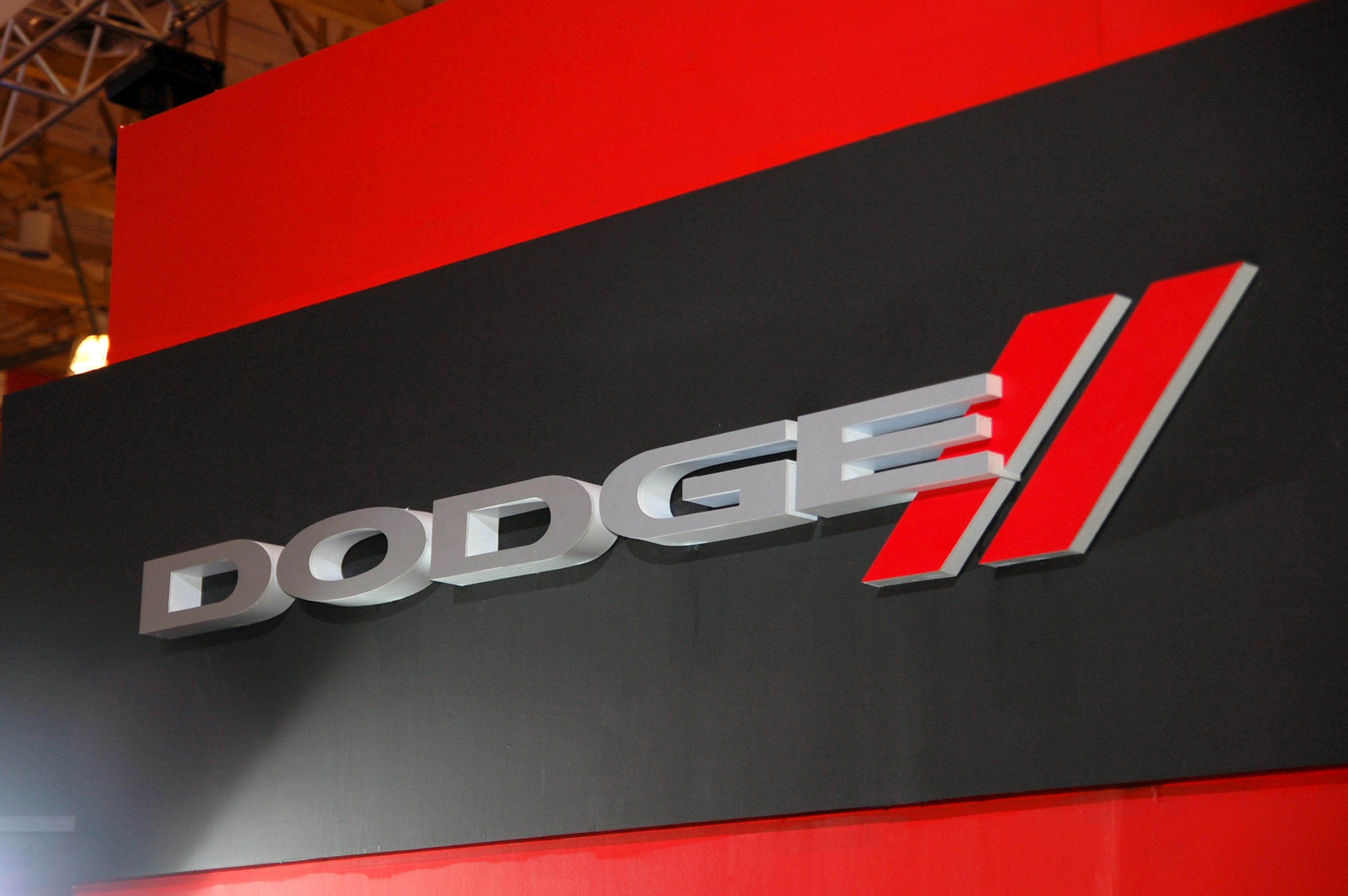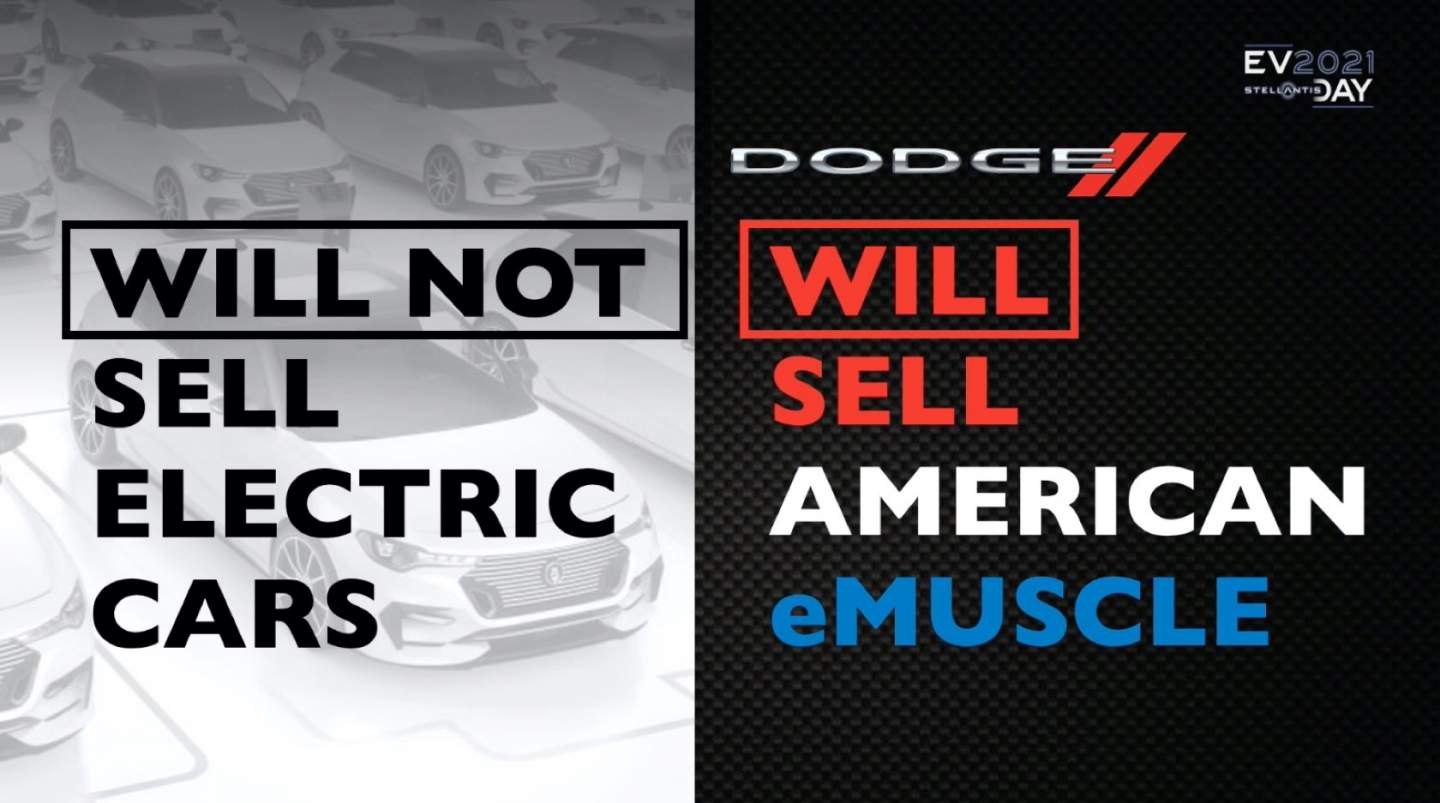Dodge is going electric in 2024, which is good — so why does it seem nervous?
Dodge just announced its first EV, then claimed it won't sell electric cars.

With the internal combustion engine on its way out, automakers have slowly started hatching plans to continue their business after electrification kicks in. The latest is the all-American muscle car brand, Dodge.
Yes, Dodge, which is one of the last companies you'd expect to swap its super-powered V8 engines for electric motors. Which might just explain the truly bizarre approach the company has taken to justifying the swap from gas to batteries.
- Here are the best electric cars you can buy right now
- How long does it take to charge an electric car? What you need to know
- Plus: Tesla hatchback: $25K price, release date, possible range and more
For most automakers the switch to electric is little more than announcing what timeline it has set out for phasing out gas. For established electric brands, that may be the promise to completely phase out the ICE by a certain year. For others, who are new to the scene, it's as simple as announcing an electric car or two.
Dodge is firmly in the latter camp, and has announced that its very first electric car will arrive in 2024. Though weirdly the company has made the outrageous claim that it "won't sell electric cars". Instead it'll sell "American eMuscle".

Which is just a fancy term for electric car. Because these vehicles will no doubt be the same four wheeled, high-performance vehicles Dodge is known for, they'll just have a battery instead of a gas tank. So the claim makes about as much sense as claiming the sky is blue.
Unfortunately, this reveal comes with a lot of justification for the switchover. While most companies will announce their electrification plans and be done with it, the way Dodge has done things almost makes it sound like the auto maker thinks "electric car" is a dirty term, and ditching gas is shameful.
It's almost as though the past 15 years never happened, and Dodge considers electric cars to still be the gimmicky little vehicles that couldn't go very far and took far too long to recharge. Which couldn't be further from the truth.
Get instant access to breaking news, the hottest reviews, great deals and helpful tips.
It's 2021, electric cars are proven technology now
Electric cars have really taken off in a big way the past several years, and more recently we've seen some absolutely spectacular vehicles unveiled. Whether that's the super-fast acceleration of the Tesla Model S Plaid, the absurd 620 mile range of the new Tesla Roadster, or the GMC Hummer EV that can carry its 9,000-pound bulk from 0-60 in just three seconds.
There are even electric hypercars, like the Rimac Nevera, which has a top speed of 258 miles per hour. In other words, electric power doesn't mean sacrificing speed or performance, which are the key things you'd expect from a company like Dodge.
And the company makes some excellent points for justifying the change. Dodge Brand CEO Tim Kuniskis spends a great deal of time doing that in the company's announcement video (above).
Kuniskis insists that electrification is actually the best thing for the Dodge of the future, but only because of what electrification can offer rather than the fact this is the way the world is going.
"If a charger can make a Charger quicker, we're in," Kuniskis said, "and while that may sound like a nuance, it’s not. Not to our customers anyway. Because our customers purchase an experience, not a technology.”
It's hard to argue with that logic, because Dodge has been around for over 100 years. Its customers know what they want and what to expect, so Dodge can't just turn round and change things up just because it changed how the cars are powered. But then again nobody expects it to.
The Hummer EV, the first models of which will arrive at the end of next year, is notable because it's pretty much the same as a gas-powered Hummer. Then there's the Ford F-150 Lightning, an electric version of America's best ever selling car that, to the causal observer, is virtually indistinguishable from the gas or hybrid models that are already on sale.
Because the people that buy those cars (or trucks in those cases) know what they want, and offering something different would only end up alienating them. So it's in a company's best interest to keep those loyal customers around, even when electrification is in the cards.
It's almost feels like Dodge expects a backlash
When you think about a typical Dodge owner, you may think of some Fast and Furious wannabe that couldn't care less about the environmental impacts of their car. They want to go fast, burn some rubber and possibly make a lot of noise in the process.
Unfortunately, it feels as though Dodge is expecting backlash from these sorts of people, who won't be too happy that their favorite car brand is ditching gasoline. And that seems pretty apparent in the way Dodge justifies the switchover.
Kuniskis isn't shy about highlighting the advantages electrification has to offer, and insists that “[Dodge engineers] know, we know, that electric motors can give us more. If we know of a technology that can give our customers an advantage, we have an obligation to embrace it. Whatever it takes to keep them in the lead.”
Yet it feels like the company is second guessing itself, and isn't quite so sure about the decision it's made. So it's over explaining the benefits of electric motors to compensate. The announcement trailer even says "why on God's green Earth would Dodge make an electric car?"
EVs do have those advantages when performance is concerned. Sure, they don't produce pollution, and they're pretty darn quiet, which are fantastic benefits. But they also have instant torque afforded by the speedier connection between the motor and the accelerator. Because it's all electrical impulses, and no fuel is being burned, putting your foot down means the car moves pretty much instantly.
If you want to go fast, and don't want to wait around for it to happen, that's a huge benefit. Even if it's just to get past a troublesome set of traffic lights faster than the car next to you.
But with this approach, it feels as though Dodge is only pandering to the antiquated attitude that electric cars are not worth having. It’s not 2010 anymore, and electric cars have proven its transportation worth a thousand times over. Pussyfooting around the term "electric car" for whatever reason doesn't actually do anyone any good.
It certainly doesn't feel like it's going to make believers out of the EV skeptics out there, just because you swapped some words around to make it seem more macho and powerful.

Tom is the Tom's Guide's UK Phones Editor, tackling the latest smartphone news and vocally expressing his opinions about upcoming features or changes. It's long way from his days as editor of Gizmodo UK, when pretty much everything was on the table. He’s usually found trying to squeeze another giant Lego set onto the shelf, draining very large cups of coffee, or complaining about how terrible his Smart TV is.
